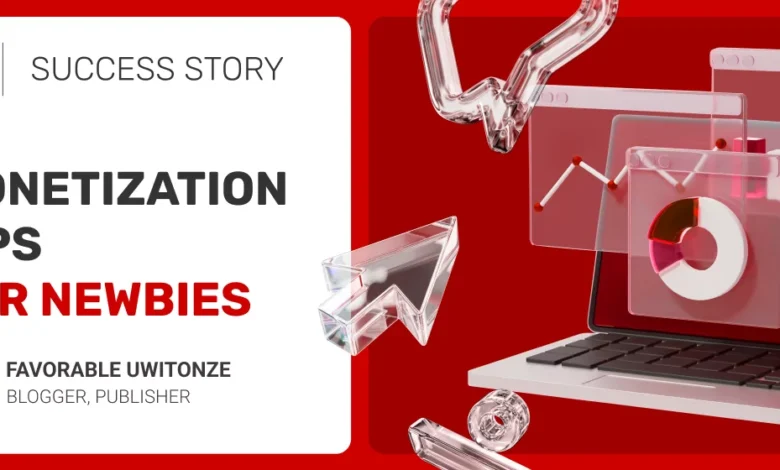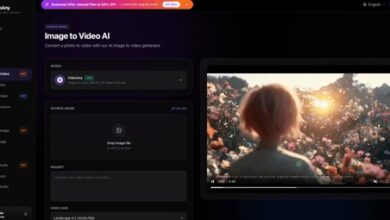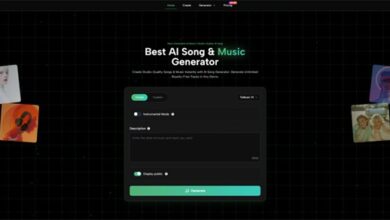Where To Learn About Monetization

Many people struggle to earn money from their apps or online content. Monetization means turning your ideas, skills, and data into cash using clear business strategies.
This post will guide you through mobile assets monetization by sharing tips for revenue generation, pricing strategies, and audience engagement. Stay here to learn innovative ways to increase your profits step by step.
Understanding Monetization for Mobile Apps
Monetization for mobile apps involves generating revenue through various methods. Creators can choose from different business models to maximize their earnings and enhance user engagement.
Definition and models
Monetization generates revenue from resources or actions that do not currently earn money. It involves different models that help creators and businesses earn income.
In-app purchases, advertising, and data licensing are popular methods. Each model caters to unique user needs while maximizing profit potential.
Data monetization focuses on turning information into financial gain. This can happen by improving operations, wrapping products with insights, or selling data directly. Understanding these definitions and models aids in selecting effective strategies for successful revenue generation.
Platforms and strategies
Several platforms help creators and businesses monetize their work. Sites like Udemy, Kajabi, and Teachable allow users to sell online courses easily. Content monetization requires understanding your audience’s needs.
You can create value through engaging content that attracts viewers or customers.
Different strategies exist for revenue generation from mobile apps. In-app purchases encourage user spending within the app itself. Advertising partnerships offer another way to generate profit while giving users free access to services or products.
Data monetization lets you turn information into economic advantages by selling insights or improving business processes. Properly utilizing these strategies can maximize profitability and enhance audience engagement in a competitive market.
Top 9 Ways to Monetize Your Mobile App
To make money with your mobile app, you can explore various avenues. Each method offers unique benefits and can fit different types of apps.
In-app purchases
In-app purchases allow users to buy additional content or features directly within a mobile app. This monetization method generates real-time revenue as users engage with the app.
Developers can offer various options, such as premium features, virtual goods, or extra levels in games. Users can enhance their experience by spending money on these items.
Many popular apps, like gaming and productivity tools, effectively use in-app purchases. They create value for users while boosting developers’ profits. Some studies show that apps utilizing this model see higher user retention and engagement rates than those without it.
Exploring other monetization methods will provide further insights into maximizing your app’s revenue potential through diverse strategies.
Advertising
Advertising allows app creators to generate revenue from their mobile applications. This monetization strategy involves displaying ads within the app, which companies pay for in exchange for user exposure.
YouTube has specific requirements that content creators must meet for advertising income. Creators can earn money directly from users or through third parties.
Many businesses implement various ad formats, such as banners, interstitials, and native ads. These options enhance user engagement and increase profit optimization. Ad networks connect developers with advertisers looking to effectively promote their products or services.
Understanding digital marketing trends helps maximize earnings through advertising avenues in mobile apps.
Data licensing
Moving from advertising, data licensing offers another path for monetization. This technique allows businesses to use their valuable data to generate revenue. By selling access to this information, companies can improve their operations or create new products.
Data monetization encompasses three main strategies: enhancing work processes, wrapping existing products with additional features, and selling specific information offerings. Many businesses benefit economically by leveraging their unique datasets.
Understanding the legal aspects of data licensing is crucial before implementing these strategies. Organizations can maximize profits through effective data monetization techniques by following solid business models and pricing strategies.
Affiliate marketing
Shifting from data licensing, affiliate marketing allows you to earn money by promoting other companies’ products or services. To drive sales, you can receive payments from users who buy through your links or directly from businesses.
Many digital platforms support this model, making it accessible for content creators.
YouTube, for instance, has specific requirements for monetization in its affiliate program. This strategy can enhance revenue generation and audience engagement while effectively leveraging online presence.
Businesses often use affiliate marketing as part of their e-commerce strategies to expand reach and boost profit optimization. Select products that match your audience’s interests to create a strong value proposition.
Sponsorships
Sponsorships offer a powerful way to monetize your mobile app. Companies pay you to promote their products or services within your app. This arrangement can generate significant revenue, especially if you have a large user base.
YouTube is an excellent example of this strategy. It has specific requirements for monetization, including sponsorship deals. By partnering with brands, creators leverage content monetization effectively and engage their audiences in new ways.
Sponsorships fit well into various business models and can significantly enhance your app’s value proposition. Next, we will explore other creative ways to monetize your app.
Other Creative Ways to Monetize Your App
You can explore donations to directly engage users who want to support your app. Crowdfunding allows creators to fund development while building a community around their projects.
Donations
Donations offer a straightforward way to monetize your app. Users can contribute money directly to support your work. This method works well for apps that provide value or unique content.
Crowdfunding platforms like Patreon and Ko-fi allow creators to receive ongoing support from their audience. Many users appreciate the chance to give back, especially if they benefit from the app.
Content monetization through donations requires clear communication about why you need funds. Show supporters how their contributions will help improve your app or create new features.
Transparency enhances audience engagement and builds trust, encouraging more people to donate over time. Aim for a strong value proposition that resonates with potential donors.
Crowdfunding
Donations and crowdfunding share a similar goal: raising money for projects. Crowdfunding allows creators to gather funds from many people, often via online platforms. This method works well for app developers seeking financial support to launch or enhance their products.
Platforms like Kickstarter and Indiegogo allow users to pitch ideas and attract backers.
Crowdfunding can be an effective way to generate revenue and build an audience. Users contribute small amounts of money in exchange for rewards or early access to apps or services.
Offering clear value propositions and engaging potential backers through digital marketing strategies is essential. Many entrepreneurs use this model successfully, showcasing their projects while optimizing profits before official releases.
Physical goods and services
Crowdfunding connects aspiring entrepreneurs to potential investors. After exploring that route, consider physical goods and services as another monetization option for your app. You can create and sell tangible items, such as merchandise related to your app’s theme or purpose.
Consider offering products such as clothing or accessories that resonate with your audience.
Services also provide a valuable way to generate revenue. Based on your expertise, you might offer consulting, coaching, or educational opportunities. Online courses are an excellent example of how individuals can monetize their knowledge through platforms like Udemy or Teachable.
These strategies enhance audience engagement and contribute to overall profit optimization in your business model.
Hybrid monetization models
Hybrid monetization models combine different strategies to maximize revenue. These can mix in-app purchases, advertising, and subscription services within a single app. For example, an app might offer free usage supported by ads while providing premium features for a fee.
Users enjoy flexibility in engaging with content, and creators benefit from multiple income streams.
Data monetization plays a vital role in these models. It allows developers to improve their offerings or package data for sale as information products. Understanding which hybrid approach fits your audience is crucial for effective profit optimization.
Next, explore best practices to ensure successful monetization strategies.
Best Practices for Successful Monetization
Experiment with different pricing strategies to maximize your app’s revenue and stay attuned to user feedback. Measure key metrics to enhance your approach effectively. This strategy will help you optimize profitability in the competitive app market.
Dive deeper into successful monetization techniques!
Experimenting with app listings
Experimenting with app listings can significantly enhance your revenue generation. Test different titles, descriptions, and visuals to see what attracts more users. Use A/B testing to compare variations in paywalls or subscription services.
Small changes can lead to substantial increases in downloads and user engagement.
Platforms like the App Store and Google Play have specific requirements for monetization. Ensure your listing meets these standards while clearly showcasing your value proposition.
By iteratively optimizing your app’s presentation, you can find effective pricing strategies that resonate with potential users and boost profits through improved audience engagement.
A/B testing paywalls
Effective monetization requires careful strategies. A/B testing paywalls help you find the best way to charge users for your content. This method involves creating two versions of a paywall and seeing which one performs better.
You can test different pricing models, layouts, or messaging.
This process allows you to measure user engagement and revenue generation effectively. Content monetization benefits greatly from this testing approach because it optimizes your offerings based on real user data.
Monitoring these metrics lets you adjust strategies quickly, ensuring your app remains profitable in an evolving market landscape.
Offering trials and special offers
Shifting focus from A/B testing paywalls to offering trials and special offers can boost engagement with your app. Many businesses provide free trials to attract new users. By allowing potential customers to explore the features, you increase their likelihood of conversion.
Special offers also create urgency. Discounts or limited-time promotions can encourage immediate purchases. Platforms like Udemy and Teachable let creators design online courses that effectively fit these strategies.
This approach helps monetize content by turning casual browsers into loyal customers who see value in subscription services or other pricing models.
Measuring key metrics
Measurement of key metrics becomes crucial in the monetization process as trials and special offers are phased out. Key metrics help you understand how well your app performs financially and operationally.
Tracking these numbers allows you to assess revenue generation effectively. Metrics like daily active users (DAU) and retention rates show user engagement levels.
Business analytics also plays a vital role here; they reveal customer behavior patterns that can optimize pricing strategies for better profit optimization. Tracking data helps identify which features engage users most, guiding content monetization efforts.
For apps seeking subscription services or digital marketing growth, precise performance measurement can directly lead to successful outcomes in market analysis and audience engagement initiatives.
Final Thoughts and FAQs
Measuring key metrics helps you fine-tune your monetization efforts. Different strategies yield varying results, so tracking performance is essential. Monetization generates revenue from products or services that currently do not earn money.
This process can involve data monetization, content monetization, and other methods.
Many people ask about the best business models for mobile apps. Subscription services often provide steady income, while in-app purchases engage users effectively. Financial education can enhance your understanding of these strategies as well.
As you explore pricing models and eCommerce strategies, consider legal aspects as well; they are crucial for data monetization success.



